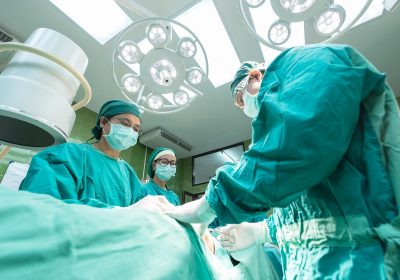Your Best Guide to Properly Preparing for Inguinal Hernia Surgery

An inguinal hernia is characterized by various symptoms, but one of the most common symptoms of the condition is discomfort. Discomfort can come from a burning feeling or sensation or even a fullness or pressure in the groin area. The condition can also have a noticeable bulge in the groin, especially when you stand up; it is not as apparent when you are lying down. But if you have been diagnosed with one, you may know very well that the symptoms can only get worse over time, especially as the hernia becomes larger. The best treatment for an inguinal hernia is usually surgery,if you have been scheduled for it, you will want to know how you can best prepare for it. Here, then, is your best guide to properly preparing for inguinal hernia surgery.
Basic Preparation
Before the procedure, a general anesthetic will be administered to you, but you will also have a screening assessmentappointment prior to the procedure. This will determine how suitable your physical condition is for surgery,afterwards, you will be given a schedule for your procedure.
At the screening, they will ask for details regarding any existing medication you are takingyour medical history. They will also ask you regarding any arrangements you can make for transport after the procedurehomeaftercare.
What you Should Remember
- You should make plans to have a person stay with you on the very first night once the surgery has been performed. You should also ensure that you have shopped for whatever necessitiesfood you need before your surgery.
- On the night before, avoid drinking or eating anything come midnight. This includes mints, gum, or candy. You may be able to take your medicines on the day of your surgery along with a little bit of water.
- Avoid taking any medications that can thin the blood, such as aspirin. You should stop these medications prior to surgery, along with the confirmationsupervision of your surgeon or physician, as confirmed by an experienced hernia surgeon London from clinics such as The London Surgical Group. In certain cases, your medications may have to be replaced, so this should be discussed with your surgeon or physician.
- If you have diabetes, avoid taking insulinother diabetic treatment medications.
- If you have contact lenses, don’t wear them prior to the procedurebring a pair of spectacles.
- Take a bath – or shower – prior to going to the clinic or hospital.
- When you go to the clinic for your surgery, wear loose, comfortable clothing. If you are undergoing laparoscopic surgerydo not have to stay in the clinic or hospital overnight, it is still wise to bring a set of toiletries to be sure. Avoid wearing nail polish or makeup as this can make it difficult for the surgical team to monitor your colouring.
- On the day of your operation, you should also bring whatever medication you are taking in its original bottle or container, as recommended by experts in hernia surgery in London.
- Once your surgery has been performed, you cannot drive, so arrange for a friend or family member to drive you.
Remember this as well: the idea of having surgery can be daunting, but as long as you are adequately prepared, everything should go well.
